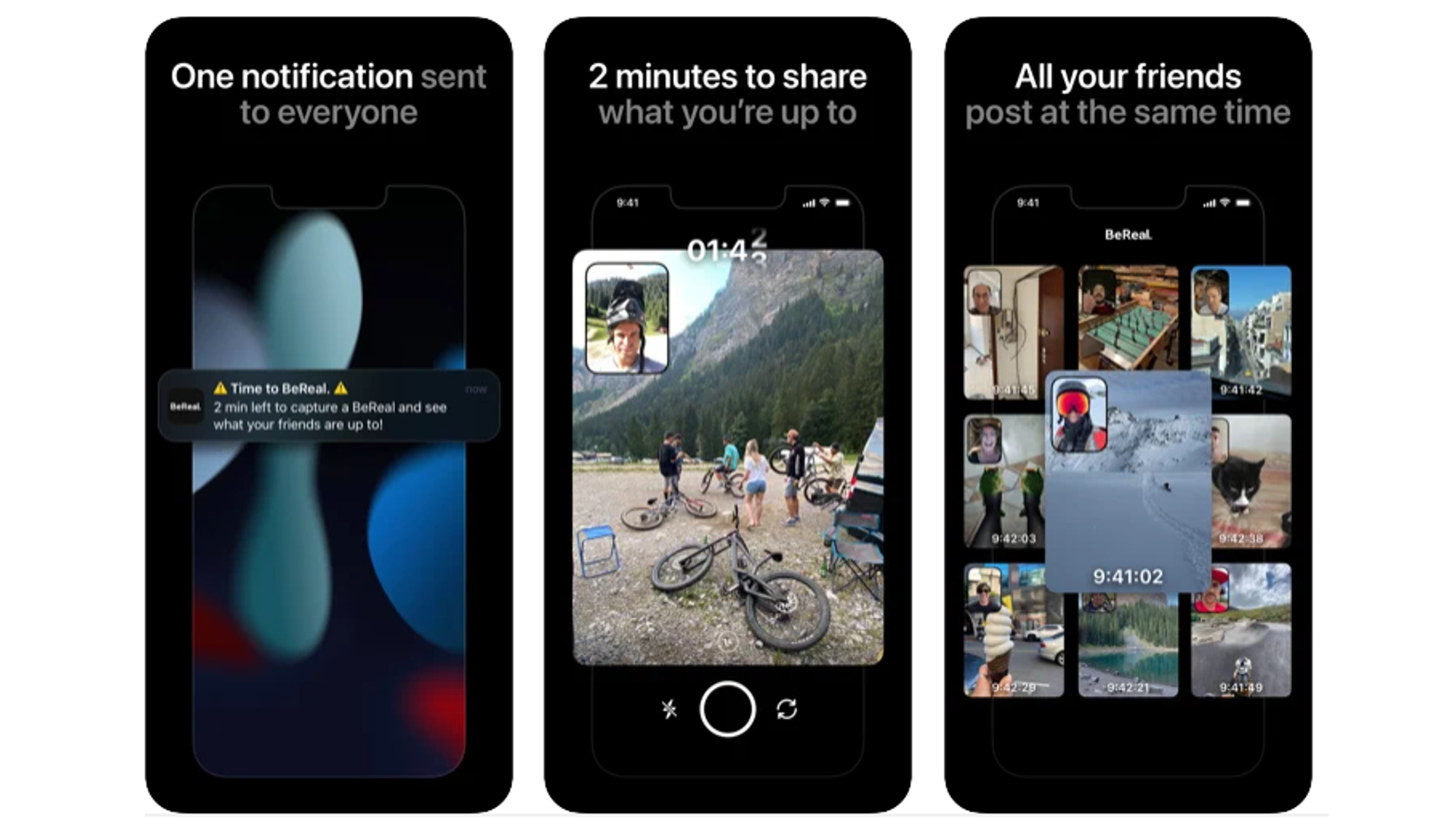Could this ‘authentic’ photo app be the death of Instagram?
Does one trivial moment captured during your day actually say anything about your authenticity?


Once a day, at random, the app BeReal sends its users a notification. It tells them that they have two minutes to take a photo using their phone's front and rear-facing cameras. Only after they have posted can they see what others have posted. Scroll through the “discovery” feed, and you will come across people walking their dog, watching football, reading a book.
BeReal wants to banish the smoke and smash the mirrors that come with social media. It sees itself as the "anti-Instagram", making a virtue of bland normalcy. "BeReal won't make you famous," reads its description on the App Store. "If you want to be an influencer you can stay on TikTok and Instagram." To put all this more succinctly, BeReal aims to cultivate "authenticity".
Authenticity. It obsessed Holden Caulfield in The Catcher in the Rye and now it obsesses us. And perhaps for good reason: the online world tends towards the superficial, and at any rate, authentic people are usually more trustworthy, have closer relationships, and are happier and healthier than – to quote Holden – their "phonier" counterparts.
But the word is used so often, and in so many wildly diverse contexts, that its meaning is being rapidly watered down. "Authentic" leadership, "authentic" advertising, "authentic" cuisine... Elon Musk wants Twitter accounts to be "authentic". (I cannot help but wonder what this means for dissidents in authoritarian states, or people with good reasons for concealing their identities, such as LGBT+ kids in deeply conservative families or social enviornments.)
This makes me wish we could find a neat substitute for the word. I have rummaged through the drawers and cupboards of my mind, turned over all the furniture, in the hope of getting my hands on a word that communicates the same essential harmony between what we say and do and who we are. It is a useful thing to be able to get across, not least because there are very legitimate reasons for some people feeling that they cannot be themselves around others, and discussions on why that is and what we can do about it are worth having.
In most of these cases, authenticity really means something else: transparency or consistency or vulnerability. As for BeReal, however noble its intentions, sooner or later it will not to be promoting authenticity at all, but something more like authenticity-as-performance.
It invites users to compare their lives, first of all, which rarely ends well; and that will lead some, if not a majority, to compete at being candid, to try to seem more raw and unadorned than one another. And more than this, does one trivial moment captured during your day actually say anything about your authenticity? Does (for instance) a snap of yourself eating a mediocre sandwich while you hasten to work reveal anything about how genuine you are?
To keep up to speed with all the latest opinions and comment, sign up to our free weekly Voices Dispatches newsletter by clicking here
Just as Instagram has historically been the kind of place where certain people feel compelled to portray their lives as glitzier or more vibrant and exciting than they feel they are, BeReal is a world which seems to tempt users, in contrast, to seem more earthy and understated – even dull. Which is quite boring. And which is still performance. And performance is the opposite of authenticity.
Authenticity is not something you try to be; it is what happens when you stop trying to be someone other than you are. It is simply the upshot of ceasing to perform and please others by behaving in a way they deem desirable.
A small irony to all this is that BeReal’s extraordinary growth this year, attracting more than seven million new users, has not been entirely organic. In fact – as a college newspaper has reported – the app paid students to download and review it. That doesn’t sound very authentic to me.
Join our commenting forum
Join thought-provoking conversations, follow other Independent readers and see their replies
Comments
Bookmark popover
Removed from bookmarks